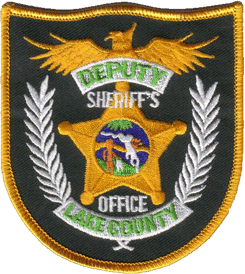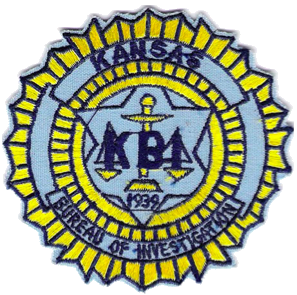
Megan's Law is the name for a federal law, and informal name for subsequent state laws, in the United States requiring law enforcement authorities to make information available to the public regarding registered sex offenders. Laws were created in response to the murder of Megan Kanka. Federal Megan's Law was enacted as a subsection of the Jacob Wetterling Crimes Against Children and Sexually Violent Offender Registration Act of 1994, which merely required sex offenders to register with local law enforcement. Since only few states required registration prior to Megan's death, the state level legislation to bring states in compliance—with both the registration requirement of Jacob Wetterling Act and community notification required by federal Megan's Law—were crafted simultaneously and are often referred as "Megan's Laws" of individual states. Thus, federal Megan's Law refers to community notification, whereas state level "Megan's Law" may refer to both sex offender registration and community notification.
A sex offender is a person who has committed a sex crime. What constitutes a sex crime differs by culture and legal jurisdiction. The majority of convicted sex offenders have convictions for crimes of a sexual nature; however, some sex offenders have simply violated a law contained in a sexual category. Some of the serious crimes which usually result in a mandatory sex-offender classification are sexual assault, statutory rape, bestiality, child sexual abuse, incest, rape, and sexual imposition.

The Dru Sjodin National Sex Offender Public Registry is a cooperative effort between U.S. state agencies that host public sex offender registries and the U.S. federal government. The registry is coordinated by the United States Department of Justice and operates a web site search tool allowing a user to submit a single query to obtain information about sex offenders throughout the United States.

The Jacob Wetterling Crimes Against Children and Sexually Violent Offender Registration Act, colloquially known as the Wetterling Act, is a United States law that requires states to implement a registry of sex offenders and crimes against children. It is named for Jacob Wetterling, a Minnesota eleven-year-old who was abducted by a stranger in 1989, and was missing for almost 27 years until his death was confirmed when his remains were found on September 1, 2016.

Jessica's Law is the informal name given to a 2005 Florida law, as well as laws in several other states, designed to protect potential victims and reduce a sexual offender's ability to re-offend. A version of Jessica's Law, known as the Jessica Lunsford Act, was introduced at the federal level in 2005 but was never enacted into law by Congress.

The Adam Walsh Child Protection and Safety Act is a federal statute that was signed into law by U.S. President George W. Bush on July 27, 2006. The Walsh Act organizes sex offenders into three tiers according to the crime committed, and mandates that Tier 3 offenders update their whereabouts every three months with lifetime registration requirements. Tier 2 offenders must update their whereabouts every six months with 25 years of registration, and Tier 1 offenders must update their whereabouts every year with 15 years of registration. Failure to register and update information is a felony under the law. States are required to publicly disclose information of Tier 2 and Tier 3 offenders, at minimum. It also contains civil commitment provisions for sexually dangerous people.

The Lake County Sheriff's Office is the largest law enforcement agency in Lake County, Florida, United States. Per the State of Florida Constitution, the sheriff is the chief law enforcement officer of both the incorporated and unincorporated areas of the county. The current Sheriff is Peyton C. Grinnell who was elected November, 2016 in the Lake County general election. He succeeds Sheriff Gary Borders, who was appointed by Governor Jeb Bush following the death of Sheriff Chris Daniels in 2006, and was subsequently elected in 2008, and 2012. The agency has been awarded with a certificate of accreditation from the Commission for Florida Law Enforcement Accreditation, consequently, both the Law Enforcement and Corrections divisions of the Lake County Sheriff's Office are now accredited.

The Kansas Bureau of Investigation (KBI) is the state bureau of investigation of the U.S. state of Kansas. The KBI is a division of the Kansas Attorney General and responsible for providing investigative and criminal laboratory services to criminal justice agencies, as well as investigating and preventing crime in the state of Kansas. Kirk Thompson is the current director of the KBI.
A sex offender registry is a system in various countries designed to allow government authorities to keep track of the activities of sex offenders, including those who have completed their criminal sentences. In some jurisdictions, registration is accompanied by residential address notification requirements. In many jurisdictions, registered sex offenders are subject to additional restrictions, including on housing. Those on parole or probation may be subject to restrictions that do not apply to other parolees or probationers. Sometimes, these include restrictions on being in the presence of underage persons, living in proximity to a school or day care center, owning toys or items targeted towards children, or using the Internet. Registered sex offenders are not allowed to sign up for or use Facebook or other social media platforms. Sex offender registries exist in many English-speaking countries, including Australia, Canada, New Zealand, the United States, Trinidad and Tobago, Jamaica, South Africa, the United Kingdom, Israel, and the Republic of Ireland. The United States is the only country with a registry that is publicly accessible; all other countries in the English-speaking world have sex offender registries only accessible by law enforcement.

The Greenville County Sheriff's Office is based in Greenville County, South Carolina, and has its headquarters in the city of Greenville. The office employs more than 450 deputies who serve a county of more than 500,000 residents.
Child pornography is pornography that exploits children for sexual stimulation. It may be produced with the direct involvement or sexual assault of a child or it may be simulated child pornography. Abuse of the child occurs during the sexual acts or lascivious exhibitions of genitals or pubic areas which are recorded in the production of child pornography. Child pornography may use a variety of mediums, including writings, magazines, photos, sculpture, drawing, painting, animation, sound recording, film, video, and video games. Child pornography may be created for profit or other reasons.

The Ministry of Gender Equality and Family or the Ministry of Gender Equality is a cabinet-level division of the government of South Korea. It was created on February 28, 1998 as the Presidential Commission on Women's Affairs. The current Ministry was formed on January 29, 2001.
Computerized Criminal History
Criminal records in the United States contain records of arrests, criminal charges and the disposition of those charges. Criminal records are compiled and updated on local, state, and federal levels by government agencies, most often law enforcement agencies. Their primary purpose is to present a comprehensive criminal history for a specific individual.

Illinois Voices for Reform is a non-profit advocacy and support organization for Illinois sex offenders and their families. It is dedicated to providing education on issues affecting sex offenders to the public and to legislators. Illinois Voices for Reform is an affiliate organization of Reform Sex Offender Laws, Inc., and is one of the more than 50 organizations nationwide movement to reform sex offender laws in the United States. The group holds that current sex offender registry laws have gone far beyond their original intent of protecting children, and therefore aims to promote and supports laws that are sensible and make society safer while protecting the constitutional rights of everyone involved.

Arkansas Time After Time (ATAT) is a Conway, Arkansas-based non-profit, all-volunteer civil rights and justice reform organization. It is funded by its members. It is a grassroots legislative advocacy group dedicated to making communities safer and upholding constitutional rights of those labelled sex offenders by advocating for fact-based, common-sense laws. ATAT is part of the growing movement to reform sex offender laws in the United States. The mission of this organization is to develop a cooperative sense of community rather than take an adversarial approach between people on the sex offender registry, victim's advocacy groups and the authorities in the state. Arkansas Time After Time is state affiliate of National RSOL, and one of the more than 50 organizations seeking to reform sex offender registration-related laws in US. Their name is reference to time those labelled as sex offenders have to serve under public registries and constantly changing requirements after serving their court imposed sentences.

Sex offender registries in the United States exist at both the federal and state levels. Registries contain information about persons convicted of sexual offenses for law enforcement and public notification purposes. All 50 states and the District of Columbia maintain sex offender registries that are open to the public via websites, although information on some offenders is visible to law enforcement only. Public disclosure of offender information varies between the states depending on offenders designated tier, which may also vary from state to state, or risk assessment result. According to NCMEC, as of 2016 there were 859,500 registered sex offenders in United States.

Constitutionality of sex offender registries in the United States have been challenged on a number of constitutional and other bases, generating substantial amount of case law. The Supreme Court of the United States has upheld sex offender registration laws each of the two times such laws have been examined by them. Those challenging the sex offender registration and related restriction statutes have claimed violations of ex post facto, due process, cruel and unusual punishment, equal protection and search and seizure. A study published in fall 2015 found that statistics cited in two U.S. Supreme Court decisions that are often cited in decisions upholding the constitutionality of sex offender policies are unfounded. Several challenges to some parts of state level sex offender laws have been honored after hearing at the state level.

The movement to reform sex offender laws in the United States describes the efforts of individuals and organizations to change state laws requiring Sex offender registries in the United States. Efforts fall into two main categories, advocacy for reform of statutory rape laws that may require a teenager to register as a sex offender for consensual sexual acts involving a younger teen, and broader efforts to modify sex offender registration laws based upon their sometimes dramatic impact on a convicted sex offender and belief that they provide little benefit for public safety.